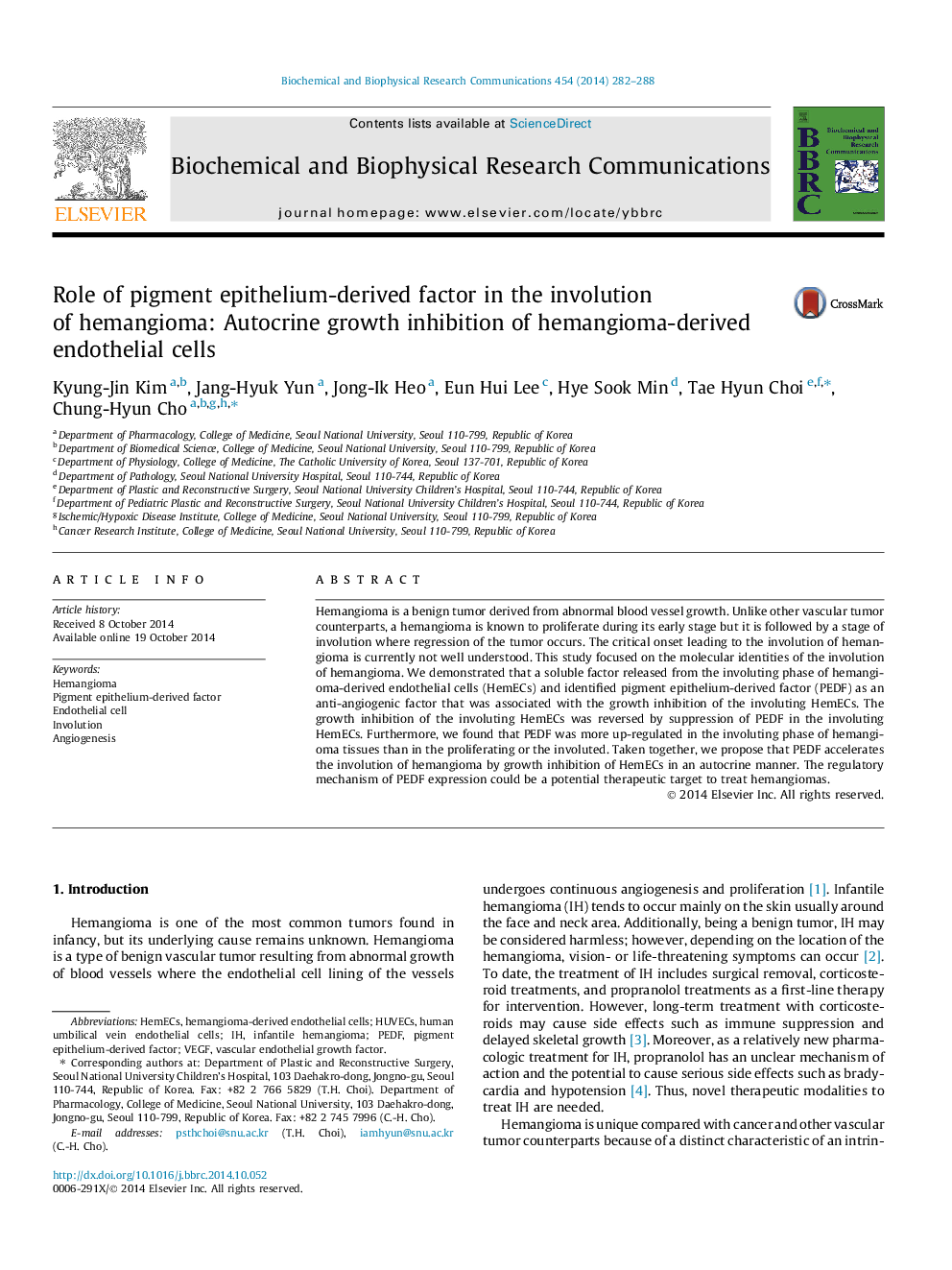| Article ID | Journal | Published Year | Pages | File Type |
|---|---|---|---|---|
| 1928359 | Biochemical and Biophysical Research Communications | 2014 | 7 Pages |
•PEDF was expressed and induced during the involuting phase of IH.•PEDF inhibited the cell growth of the involuting HemECs in an autocrine manner.•PEDF suppression restored the impaired cell growth of the involuting HemECs.
Hemangioma is a benign tumor derived from abnormal blood vessel growth. Unlike other vascular tumor counterparts, a hemangioma is known to proliferate during its early stage but it is followed by a stage of involution where regression of the tumor occurs. The critical onset leading to the involution of hemangioma is currently not well understood. This study focused on the molecular identities of the involution of hemangioma. We demonstrated that a soluble factor released from the involuting phase of hemangioma-derived endothelial cells (HemECs) and identified pigment epithelium-derived factor (PEDF) as an anti-angiogenic factor that was associated with the growth inhibition of the involuting HemECs. The growth inhibition of the involuting HemECs was reversed by suppression of PEDF in the involuting HemECs. Furthermore, we found that PEDF was more up-regulated in the involuting phase of hemangioma tissues than in the proliferating or the involuted. Taken together, we propose that PEDF accelerates the involution of hemangioma by growth inhibition of HemECs in an autocrine manner. The regulatory mechanism of PEDF expression could be a potential therapeutic target to treat hemangiomas.
